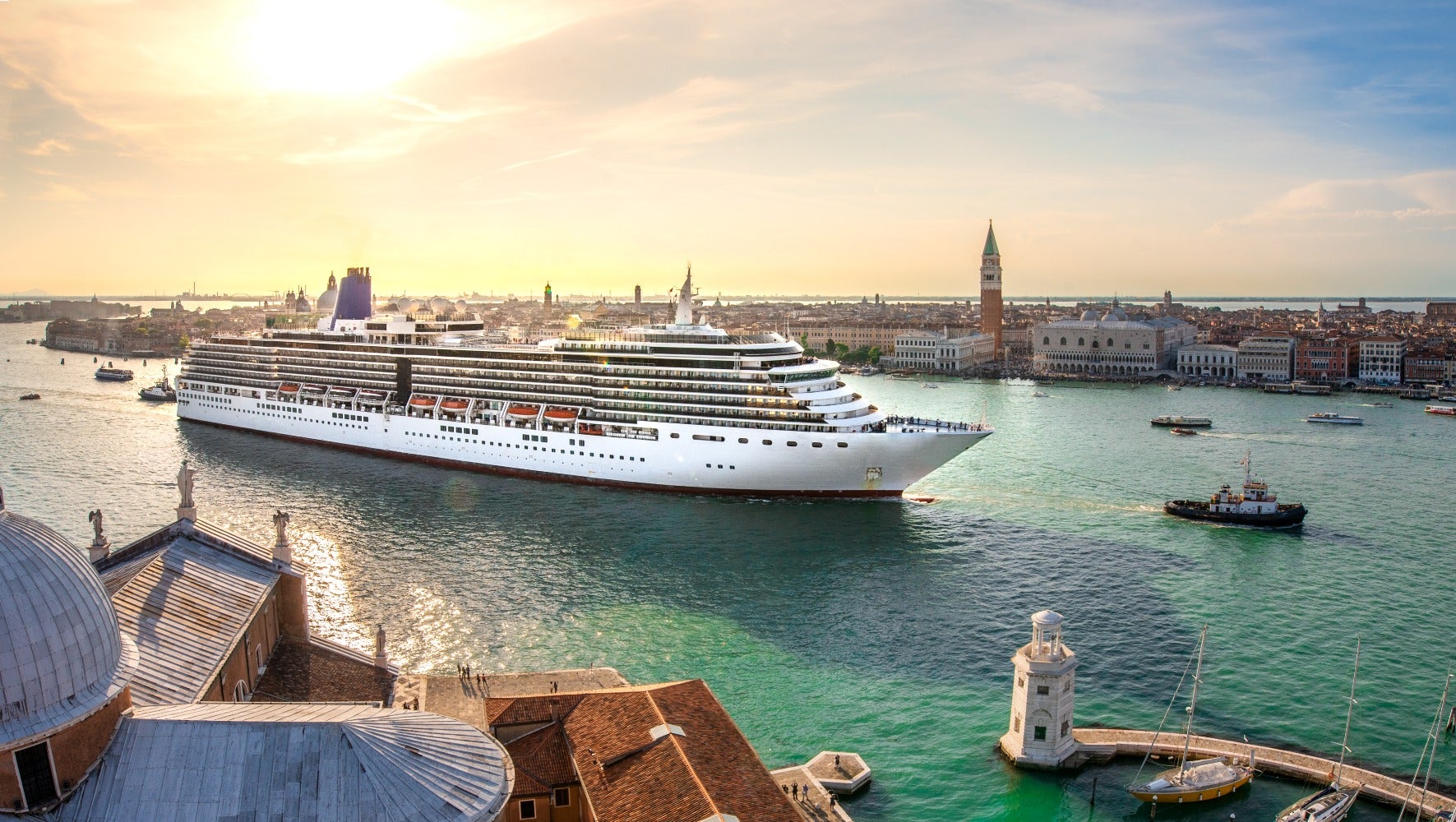Venice’s recently announced ban on large cruise and container ships entering the city’s endangered lagoon has been a long time coming. However, this decision will not act as a silver bullet for calming apprehensions surrounding the city’s future.
Questions remain
In the details of the government decision, it was stated that €2.2m will be pledged for the construction of berths outside Venice lagoon to keep cruise ships away from the popular centre. However, there seems to be no direct action plan in place for this decision and timescales for stages in construction. In the meantime, cruise tourists will disembark at the industrial port of Marghera, adjacent to the historic islands of Venice. However, it has been stated that this temporary fix may not be feasible. To accommodate cruise ships docking at Marghera, the current Canale dei Petroli would have to be widened and deepened, according to the anti-cruise ship campaign group No Grandi Navi leader Tommaso Cacciari. Modifying the dimensions of the canal would create more unsustainable impacts such as negatively impacting aquatic eco-systems, which have started to recover due to the lack of movement caused by the pandemic.
Hands may have been forced
The decision came in response to a request from the United Nations’ (UN) cultural body UNESCO. The request could have contained details around potential plans to put Venice on UNESCO’s list of world heritage sites in danger if the impact of cruise tourism was not addressed. This implies that the Italian Government begrudgingly came to this decision. This would have created further negative press for Venice if it went on the list, as well as potentially exacerbating the impact of over-tourism, which is the opposite of what UNESCO is aiming to do. Many tourists from all over the globe may flock to Venice as international travel re-opens from the pandemic if the city was placed on the list. Travellers could develop the mentality that they need to see the city now before counteractive measures are taken, which could negatively impact the touristic experience in Venice, at least in the short term.
Impact of cruise tourism
Cruise tourism in Venice has created an array of sustainability issues for the city. Environmentally, large cruise ships have been accused of eroding the city’s foundations, harming marine life, increasing the chance of calamitous crashes with the city itself, polluting the water with harmful chemicals and acting as a general eyesore. The alleged impacts do not just stop there. Cruise tourism also creates social and economic impacts. Many cruise tourists do not stay overnight in the city, meaning they provide little value, with many not even eating whilst they are there, with food already included in the price of their cruise booking. Recent years of severe over-tourism spurred by cruise ships have ultimately led to depopulation and an increased reliance on tourism for employment and a buoyant local economy. This has meant that cruise tourism has forced its way into becoming a necessary evil for the city.
Although the cruise ship ban is a step in the right direction, it is evident that government officials may have had their hands forced into making this decision. This could continue fears around the city’s future, with economically focused officials and a solution to the cruising issue that remains ambiguous.
How well do you really know your competitors?
Access the most comprehensive Company Profiles on the market, powered by GlobalData. Save hours of research. Gain competitive edge.

Thank you!
Your download email will arrive shortly
Not ready to buy yet? Download a free sample
We are confident about the unique quality of our Company Profiles. However, we want you to make the most beneficial decision for your business, so we offer a free sample that you can download by submitting the below form
By GlobalData









Related Company Profiles
United Nations
UNESCO, Ltd.